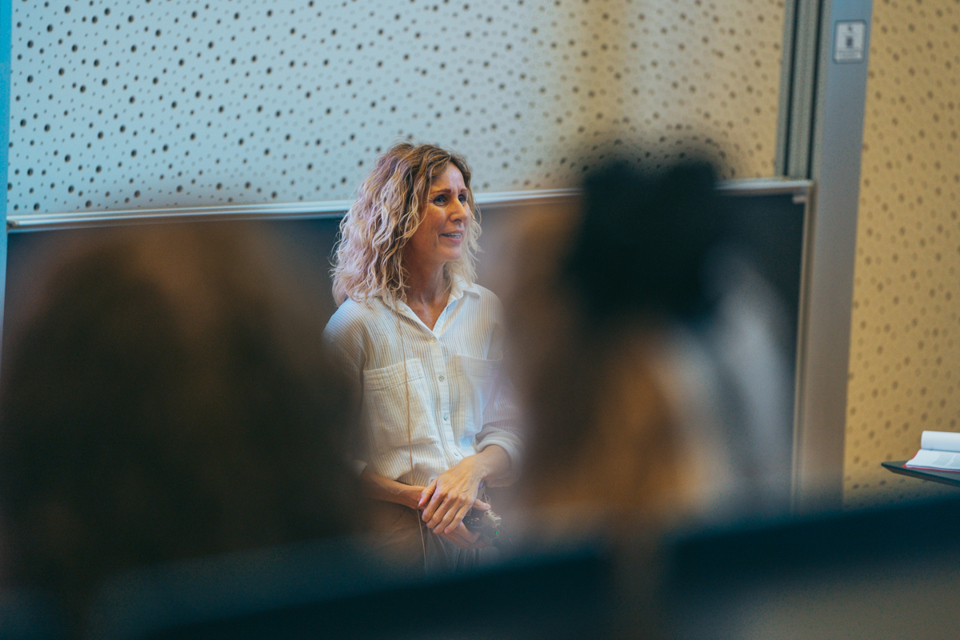According to the pro-rector, the framework for the Master's degree programme for working professionals in particular has been a major part of the committee's discussions thus far. The financial framework for the reform stated that students in the new professionally oriented master's degree programme must be included in the labour supply by working 25 hours a week – at the same time as they must take care of their full-time studies. This gives a total working week of up to 61 hours a week, and this is not a sustainable solution for the students, according to the universities.
According to the pro-rector, the concern is that a Master's degree programme for working professionals with such a heavy workload will simply not be attractive to students. That no one or only a few will apply to them. The universities predict that the consequence will be that the universities will instead have to create significantly more short Master's degree programmes of 75 ECTS than politicians proposed. The aim is for 20 percent of the Master's degree programmes to be converted to professionally oriented Master's programmes and 10 percent to short Master's programmes of 75 ECTS. Right now, the universities' assessment is that it is only possible to convert seven percent of the degree programmes to Master's degree programmes for working professionals.
What do the parties involved say?
The pro-rector reviewed the further progress of the committee's work up to October. The committee will submit its final report with recommendations for what the new Master’s programme landscape should look like.
"After that, there are discussions in the politicians behind the reform where we hope that there will be a small crack, but we don't know. We’ll have to wait and see," said the pro-rector.
With this, Anne Marie Kanstrup made a thinly veiled reference to Universities Denmark's appeal to politicians to loosen the premise for the reform, mentioned in a debate article on Altinget.dk (in Danish).
Plenty of time to develop good programmes
The pro-rector emphasized several times that the framework for the new master's degree programmes is not in place.
"I say this so clearly here, because I know that many of you have thought that now comes the interim report, and then we can get started looking at which programmes need to be restructured. It appears from the interim report that we can now start to involve the universities more broadly, but I don't think it makes sense before we know the framework for the work," the pro-rector explained.
From January 2025, the universities have three years to develop and get the new degree programmes approved, and the pro-rector emphasized that AAU must think carefully about this work.
“We must work wisely – and hurry slowly” she said.
We should not rush through a solution, and we must stick with that for the sake of the students and for the sake of our programmes. We will focus on the fact that at AAU we offer high-quality education, with a good study environment and close contact between students and teachers," added the pro-rector before opening up for questions from the audience.
Staff members’ questions and perspectives
Around 50 staff members turned up for the Q&A in Aalborg or followed it from Copenhagen and Esbjerg. Several people had questions for the pro-rector.
One staff member expressed concern about whether there will actually be a clarification on what the new Master’s programme landscape will look like before the spring. Here, the first students who will eventually be enrolled in the new Master's programmes can apply to a bachelor's programme. To this, the pro-rector replied that the clarification must be in place before then so that future students can also know which Master's programmes their bachelor's programme provides access to.
Another staff member wanted to know if the universities will restructure their programmes in the same way. The pro-rector replied that the committee is obligated to create a coherent programme landscape, and that she expects the universities to 'look each other in the eye' and discuss how a specific degree programme should be restructured across the universities.
Other questions gave rise to the pro-rector's statement that the short Master's degree programmes of 75 ECTS must have a research track so that researchers will also be trained in these disciplines.








